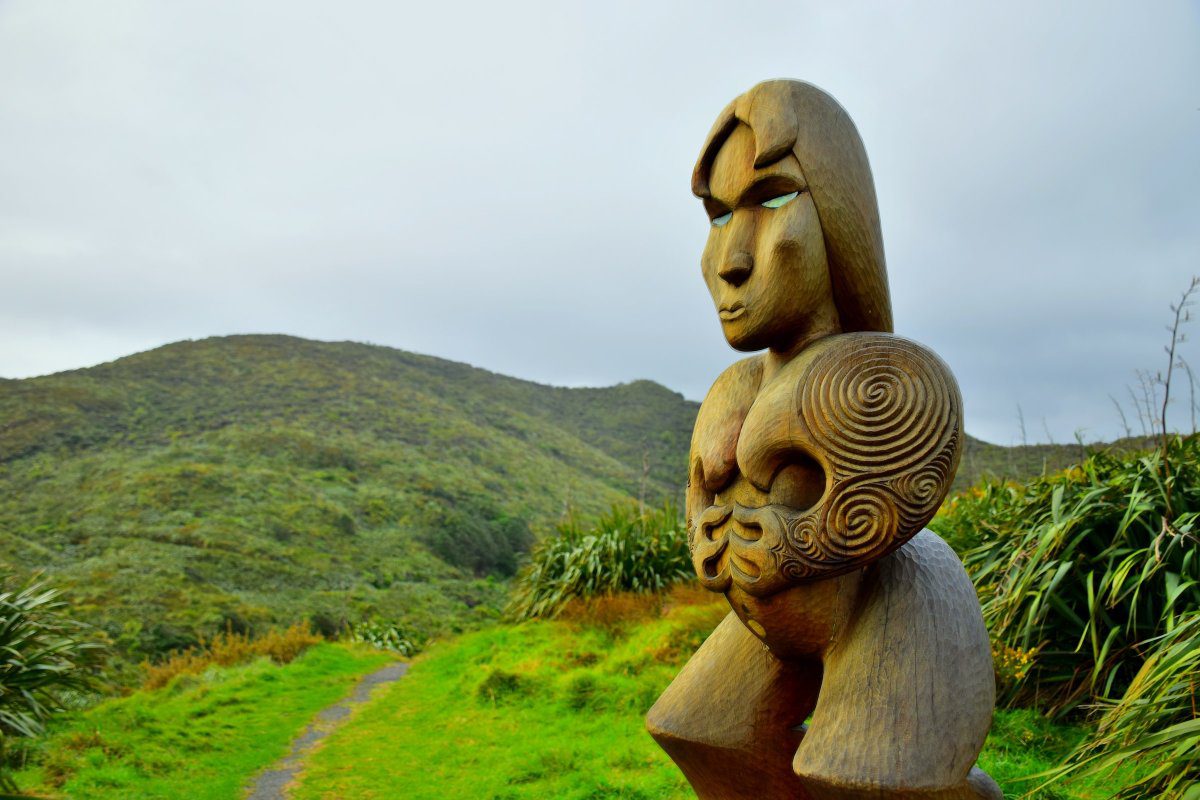Skift Take
Now that New Zealand has zeroed in on its Māori heritage as an asset in storytelling, it has to make sure that it does not lose sight of it as more than just marketing.
New Zealand is leveraging its Māori heritage in its latest marketing campaign, “If You Seek.” After being closed off to tourism for two years, Tourism New Zealand is using its reopening as an opportunity to pull tourists back with its unique asset: its original Māori identity.
The campaign puts Māori culture at the forefront. In videos, viewers are immersed in potential adventures in bungee jumping, hiking, cuisine, campaign, scuba diving and more while a narrator describe these experiences with Māori concepts like Manaakitanga (hospitality), taonga (treasure) and tapu (sacred). In the videos, viewers are repeatedly reminded with a logo that says “100% Pure New Zealand.”
The island wants a high-value visitor that seeks to dig into its original culture, said Tourism New Zealand CEO René de Monchy. In one video titled “If You Seek Perspective,” the viewer sees Tāne Mahuta (‘God of the Forest’), New Zealand’s largest living tree, and is told its origin story in Māori without a translation. “You’ll understand when you get here,” the narrator said in the clip.
Tourism New Zealand found its Māori culture to be an underlying driver of visitor satisfaction in its research. ”What people say they love about New Zealand when they leave is the friendliness and warmth of the people. When you dig into it, you discover connections to Māori culture, their length of tenure of looking after the land and how they think intergenerationally,” de Monchy said.
A trap destinations can fall into when marketing their Indigenous culture is using it as prop. “What you sometimes see is that Indigenous cultures are presented more like a performance, an Indigenous dance or an Indigenous this or an Indigenous that, so it becomes a little shallow, and obviously there’s more depth to these cultures,” said William Baker, chief strategist of Destination Think, a destination marketing consultancy. In contrast, Tourism New Zealand clearly partnered with Māori “on what stories they want to tell and how,” Baker said.
The campaign represents a break from how the country has historically gone about attracting visitors. “We want to tease you a bit with what you are going to discover when you get here, whereas historically when you say you like landscapes, we show you a lot of landscapes,” de Monchy said. “Now, we know that the magic has been the engagement with the culture.”
The embrace of its Indigenous roots also follows the country’s movement toward shedding its colonial skin and embracing its original culture. There is an ongoing public discussion about adding Aotearoa (Māori for “long white cloud”) to New Zealand’s official name and restoring the original Māori names for all towns, cities and places. Tourism New Zealand often uses “Aotearoa New Zealand” in its marketing.
The island is playing catch up with other destinations that opened up earlier. After being closed for two years, the country officially reopened its borders to visitors on August 1st. “We are in a really competitive, strange period of time coming out of Covid,” de Monchy said. “We really had to push ourselves with our marketing.”
The destination had to step up its game. “The temptation of destination marketing, I think, is to bombard you with lots and lots of things you can do in this country,” de Monchy said. “We wanted to take a slightly different approach and tease the viewer and look for the curious ones.”
In one video titled “If You Seek Connection,” you see a montage of images of a Pōwhiri (welcoming ceremony) being performed by the Ngāti Awa people of Whakatāne. The viewer is left without a full picture and encouraged to visit the island to find out.
New Zealand’s Māori identity is a “super strong” asset, said Baker. He said it was wise to lean on it in the country’s reopening.
“Like any good destination, what differentiates us?,” de Monchy said. “Our Māori culture.”
The Daily Newsletter
Our daily coverage of the global travel industry. Written by editors and analysts from across Skift’s brands.
Have a confidential tip for Skift? Get in touch
Tags: coronavirus recovery, indigenous tourism, islands, marketing, new zealand
Photo credit: New Zealand, North Island Meg Jerrand / Unsplash

